Blogging & Musing...
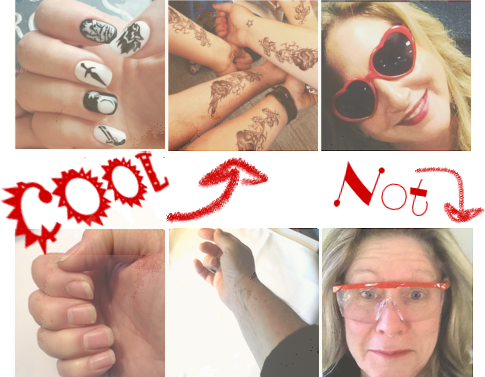
By Molly Lundquist, LitLovers.
Who doesn't want to be cool? Well, my friends, THIS is what cool looks like … and what it doesn't.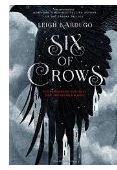 I'm a wanna be. Just when I deluded myself that—after all these years—I might be getting close, here comes LEIGH BARDUGO, author of the Grisha Trilogy (Shadow and Bone, etc.)
I'm a wanna be. Just when I deluded myself that—after all these years—I might be getting close, here comes LEIGH BARDUGO, author of the Grisha Trilogy (Shadow and Bone, etc.)
And now Leigh's got a brand new fantasy novel—Six of Crows, published to rave reviews. Think Oceans Eleven with a bunch of adolescents.
Not only is the book cool, but take a look at the photos of Leigh and friends on Instragam. Top row is Leigh. Bottom… guess who. Me. Cool? Not even close.
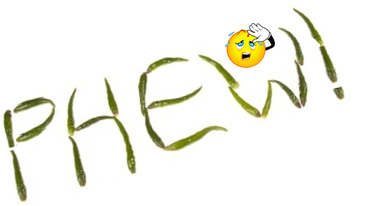 It might be time to remove BOOKSTORES and LIBRARIES from the list of endangered species!
It might be time to remove BOOKSTORES and LIBRARIES from the list of endangered species!
Over the past several years, those dealing in print books were preparing themselves for extinction. With ebook sales skyrocketing, it looked as if end times were on the horizon. But that may have changed.
According to the Association for American Publishers (AAP), digital ebook sales have dropped—by about 10%. Okay, that's not a lot, but it's enough to give books-on-shelves some wiggle room...and booksellers some hope. *
Adding to the good news, the American Booksellers Association (ABA) says its member bricks & mortar bookstores have increased their numbers over the past five years—from 1,400 to 1,700.
Moreover, some surveys show that young readers, the ones in love with digital devices, still prefer reading on paper.
Not that we readers are leaving our digitial devices behind: it's more like we're becoming "hybrid readers," toggling from hard copies to ebooks. I'm a hybrid—I love my Kindle but also enjoy the feel of a print book. You can read more in the New York Times.
So what about you? Are you a hybrid reader, strictly ebooks, or strictly paper ones?
* This just in . . . Publishers Weekly reported that April, 2016, book sales rose 8.8% over March—which means bookstore sales have risen every month this year compared to 2015. Even more impressive, bookstore sales have outpaced growth for the entire retail segment for the first five months of 2016.
 Ah, Pinterest—all those lists and photos of the BEST PLACES TO READ...inside, outside, in cities around the world. But the novelty's wearing thin.
Ah, Pinterest—all those lists and photos of the BEST PLACES TO READ...inside, outside, in cities around the world. But the novelty's wearing thin.
And that got us to thinking—perversely—about where you DON'T want to be caught with a book. So we put together our own list. This one is about . . .
THE 7 WORST PLACES TO READ
1 — Job Interview
Terrific resume. Great experience. Top-notch references. And there you sit, peering down at a book—just to prove you can multi-task. Gee, how could they not hire you?
2 — Lunar Landing Craft
You wanna screw this up? Your one big shot at making history? The world is watching, so put the book down—now—and land this baby.
3 — Parent-Teacher Conference
You think you're showing off your reading skills—which have rubbed off on your gifted kid. But while you sit there with your nose in a book, the teacher?...well, she thinks differently.
4 — Speeding Traffic
Eyes on the road; hands on the wheel. Do we really need to explain this one?
5 — Tax Audit
That's right, just keep on reading. Nonchalance implies innocence. He'll see right through you.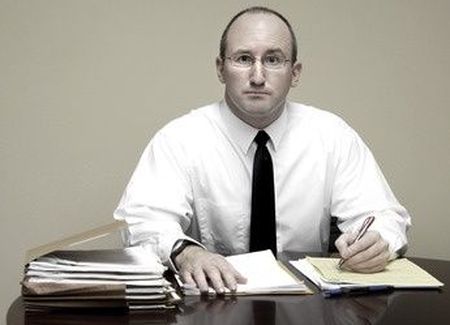
6 — Real Bedroom
This isn't on Pinterest—because this is LIFE. Picture yourself curling up here with a book and a Pinot. You can't, can you?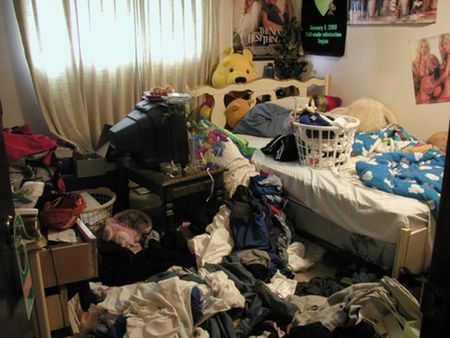
7 — Empire State Building
You could accidentally drop your book from the Observation Deck—you would see it accelerate at (32 ft. per sec.)2, hitting the ground in 15 sec. at a terminal velocity of 50 mph. And THAT would crack the book's spine—which everyone knows is a crying shame.
So, dear reader, you tell us...what's YOUR worst place to read?
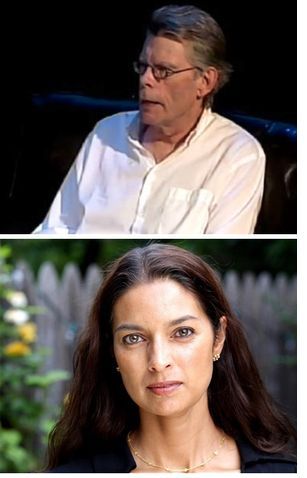 Hardy (or hearty?) congratulations go to STEPHEN KING and JUMPHA LAHIRI, who are to be awarded the prestigious Medal of Arts by President Obama. The presentation will take place at a White House ceremony today.
Hardy (or hearty?) congratulations go to STEPHEN KING and JUMPHA LAHIRI, who are to be awarded the prestigious Medal of Arts by President Obama. The presentation will take place at a White House ceremony today.
The National Endowment for the Arts awards medals each year to a wide range of individuals in the arts—actors, authors, dancers, film makers, musicians, and visual artists (painters and sculptors)—recognized for their "outstanding contributions to the excellence, growth, support and availability of the arts in the United States."
A (tiny) sampling of previous recipents includes such luminaries as Saul Bellow, Rene Flemming, Clint Eastwood, Earnest J. Gaines, Dizzy Gillespie, Ray Bradbury, Jacob's Pillow Dance, Roy Lichtenstein.
Below is what the White House has to say about the choice of King and Lahiri:
Stephen King for his contributions as an author. One of the most popular and prolific writers of our time, Mr. King combines his remarkable storytelling with his sharp analysis of human nature. For decades, his works of horror, suspense, science fiction, and fantasy have terrified and delighted audiences around the world.
Jhumpa Lahiri for enlarging the human story. In her works of fiction, Dr. Lahiri has illuminated the Indian-American experience in beautifully wrought narratives of estrangement and belonging.
Couldn't have said it better ourselves.
This year's winners also include theater director John Baldessari, choreographer Ping Chong, actress Miriam Colon, the Doris Duke Charitable Foundation, actress Sally Fields, visual artist Ann Hamilton, composer and singer Meredith Monk, tenor George Shirley, the University Musical Society, author and educator Tobias Wolff.
By Molly Lundquist—
Daisy Goodwin's The Fortune Hunter just came out in paperback, so given the hype (see NY columnist Liz Smith's review for one) I took a look...and I loved it.
The novel centers on a romantic triangle populated by actual historical characters: an Austrian empress, British heiress, and dashing cavalry captain. Some of Goodwin's story is true, some imagined. Sound like fun? It is.
Young Charlotte Baird is heiress to the Lenox fortune and considered quite a catch during her debut in London. Like many a good heroine, Charlotte defies convention much to her family's dismay. Yet it's that very independent streak that attracts the eye of handsome Captain Bay Middleton. 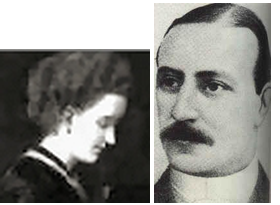 Unfortunately, Bay himself catches the eye of visiting royalty: Empress Elisabeth of Austria who has come to Britain for the hunting season. Famed throughout Europe for her beauty, Sisi, as she is known, intoxicates Bay, who is now torn between two women. (Photos left: Charlotte? and Bay)
Unfortunately, Bay himself catches the eye of visiting royalty: Empress Elisabeth of Austria who has come to Britain for the hunting season. Famed throughout Europe for her beauty, Sisi, as she is known, intoxicates Bay, who is now torn between two women. (Photos left: Charlotte? and Bay)
The story, though, offers more than a standard romance: we get an insider's view of the Victorian class system and the burdens it imposes, not on society's lower rungs but, in this novel, on the upper ones—even on royalty.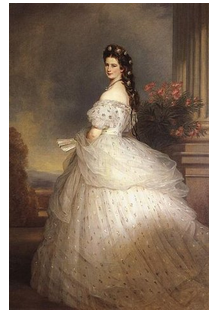 For as much as Americans are titillated by all things Downton Abby, Goodwin shows us a darker side. We see the demands for mindless conformity, especially for women. We watch how those not quite up-to-snuff (the untitled) face stinging humiliation by their "betters" (the titled). And we're privy to the tacit understanding that women are mere commodities in a cynical marriage market.
For as much as Americans are titillated by all things Downton Abby, Goodwin shows us a darker side. We see the demands for mindless conformity, especially for women. We watch how those not quite up-to-snuff (the untitled) face stinging humiliation by their "betters" (the titled). And we're privy to the tacit understanding that women are mere commodities in a cynical marriage market.
The book holds a particular interest for me. A couple of years ago, I stumbled across a 1962 movie with Romy Schneider (anyone remember her?) as Sisi, the lovely 16-year-old girl who captured the heart of the Emperor of Austria-Hungary. (Photo right: Empress Sisi)
The Fortune Hunter picks up 22 years after that romantic coupling to show the toll that royal life—with its sycophantic courtiers and stultifying dullness—has taken on Sisi. That part is true, too, and so is this—unhappy at home, Sisi traveled a good deal to remove herself from the rigid confines of the Austrian court.
This is an engaging read and an easy one, too. Goodwin has drawn her secondary characters broadly; they're somewhat cartoonish, which only makes them more fun to loathe. The author has taken more care with her leads, however, lending them a greater degree of depth. She also writes in rich detail when it comes to riding to the hunt, the new-fangled photography, and the beauty regimes of royalty (which involve slabs of veal...I'll say no more).
Read and have fun. I did. Oh, and don't miss our Reading Guide for The Fortune Hunter, complete with discussion questions.
* This review is sponsored by St. Martin's Griffin, publishers of the Fortune Hunter. The content of the review is an objective opinion by LitLovers.
We read plenty about what book clubs think of authors (and their books). But here's a twist— author Cathy Lamb tells us what SHE thinks of book clubs . . .
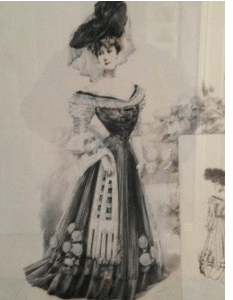 Here is a little secret: I love visiting with book groups.
Here is a little secret: I love visiting with book groups.
I chat with women here in Oregon and all around the country. Over the years I've heard some pretty funny comments—here are a few of the more amusing ones:
“My husband is an a--h--. He’s like Slick Dick in The Last Time I Was Me.”
“My husband gets irritated sometimes with how much time I spend with the kids but I say to him, ‘The kids hug me and want me to read them stories but you always want to have sex. Of course I’d rather read stories.’”
“The guys from the fire department came to take care of my husband, AGAIN, but I knew they thought he was crazy. He thought he was having another heart attack. His third that week. They didn’t say it, but I heard it: My husband is anxious about his anxiety. That’s what causes his heart to beat too fast.”
“My daughter shaves her legs too much. Is that weird?”
“Should we take off our tops like they did in Julia’s Chocolates?”
“Pot is now legal in Oregon. Do you think we should get a joint for the next book club meeting?”
“Did you run naked by a river, Cathy, like Jeanne in The Last Time I Was Me?”
“Oh, my gosh. We finished ANOTHER bottle of wine!”
“You know that sex therapist in your book, Cathy? How did you learn all that?”
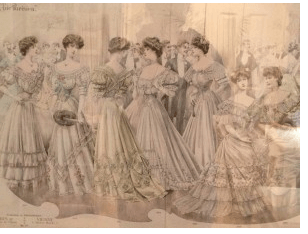 I visit many book groups during the year. If they’re within twenty minutes of my home, I go to their home. If not, we skype or chat via speaker phone.
I visit many book groups during the year. If they’re within twenty minutes of my home, I go to their home. If not, we skype or chat via speaker phone.
I’ve skyped with ladies in New York and Massachusetts, Florida and California, a whole pile of other states, and Canada. If there was a book group on the planet Pluto, I’d skype there, too.
Here’s what I’ve learned: All books groups are fantastically, mightily different from one another.
They all have different goals. Some book groups are very intellectual/literary. I have sat and been drilled about everything from character and plot development, to tone, symbolism, metaphors, pacing, structure, who are my favorite literary writers and why, etc.
Then there are groups who talk about the book half the time and chat and laugh the other half of the time.
There are other groups who read the book, talk about it for fifteen minutes, then dive into their lives. Their book group is a social group. Period. Some of ‘em don’t even hide that anymore.
Then there are groups of women who simply want to meet me, don’t want to talk a whole lot about the book, and did I want more wine? How about a couple more glasses? Beer? Vodka? They have that, too. (I don’t drink, but they do their best to make me happy.)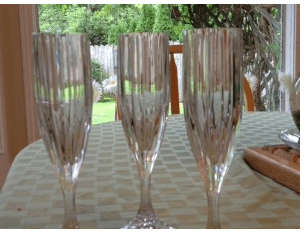 One of my favorite groups only wanted to sit down and have dinner with me. They came in laughing and drank a whole ton of wine. It was a neighborhood book group, no one drove, and they stumbled home singing and chatting. They wanted a nice girlfriend sort of visit. I did not envy them their Book Group Hangovers.
One of my favorite groups only wanted to sit down and have dinner with me. They came in laughing and drank a whole ton of wine. It was a neighborhood book group, no one drove, and they stumbled home singing and chatting. They wanted a nice girlfriend sort of visit. I did not envy them their Book Group Hangovers.
Another book group was the Laughing Book Group. My stomach hurt when I left we laughed so hard. They were all fifty-plus and life was fun.
I once went to a book group that was very, very quiet, almost somber. No one laughed. Not once. They took their reading seriously. I could tell that my book, Julia’s Chocolates, was a wee bit too wild for a few of them. Perhaps they had not liked, Breast Power Psychic Night? Perhaps, Your Hormones and You: Taking Cover, Taking Charge, was a little much? Love scenes too graphic? I don’t know.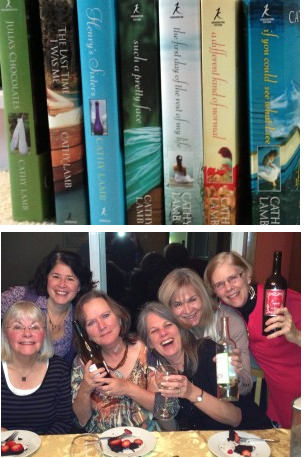 Some groups are small, only four or so women, others are thirty – plus. The age range in most of the groups varies from women in their twenties to women in their seventies.
Some groups are small, only four or so women, others are thirty – plus. The age range in most of the groups varies from women in their twenties to women in their seventies.
They want to know how I come up with my ideas, (wild imagination) how I write the book, (carefully, obsessively) what my daily life is like (just like theirs), are my characters based on real people (no), etc.
Anyhow, ladies, I’m happy to attend your book groups. Email me through my website, and we’ll set up a time.
Happy reading.
Cathy Lamb is a LitLovers author—4 of her books are listed here. We were delighted when she offered to do a guest post.
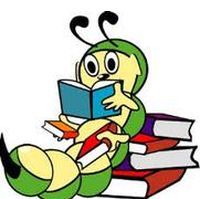 By Kristi Spuhler for LitLovers
By Kristi Spuhler for LitLoversFor most of us having a book to read is a given; it's something we take for granted.
But for some a book is a luxury—especially when it comes to underprivileged children whose parents are hard pressed to afford them. Worse: many libraries can't distribute library cards absent a return address.
Without the ability to practice reading, many children fall behind their peers. Here are the dire statistics:
A study by The American Educational Research Association found that 88% percent of children who are not reading on-level by third grade are unlikely to graduate from high school—pretty heavy repercussions from simply being unable to enjoy a book every now and again!Sue Henry wanted to do something in her hometown of Nashua, New Hampshire. So she created a one-time project called BOOKS TO KEEP to bring books to children in a local preschool learning program. That was nearly 20 years ago. Today she and her BOOK CLUB have duplicated the same program in The Villages of central Florida.
Over the last few months, Henry and her book club have delivered 5,000 books through 5 local shelters—and now they’re inviting other book clubs to start their own versions of the Books To Keep, project.
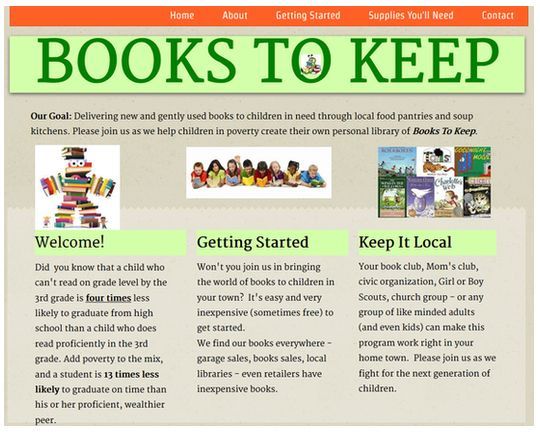
Getting started is simple, and Sue has some suggestions posted right on her site to help you get your project off the ground. To start your own donation organization, all you need to do is collect books, label them and distribute.
The donated books need not be brand new—you’d be surprised what you can find at garage sales, books sales, libraries and thrift stores. Once you begin searching for books and explaining the program, you may be surprised by how excited others are to get involved with your efforts!
The program caters to four basic categories: baby-board books, read-aloud, chapter books and YA/teen fiction. When dropping the books off at the designated pick-up stations, simply divide them into the four categories and wait to see how many of your books are "adopted" by local children in need.
This article from The Village Daily Sun does a wonderful job of outlining the program and displaying the impact Sue has made in just a few short months.
FOR BOOK CLUBS
If you're looking for a community project—a way to make a difference—why not consider starting your own BOOKS TO KEEP program? If you're interested, contact Sue Henry through her website.
Site by BOOM
![]()
LitLovers © 2024

